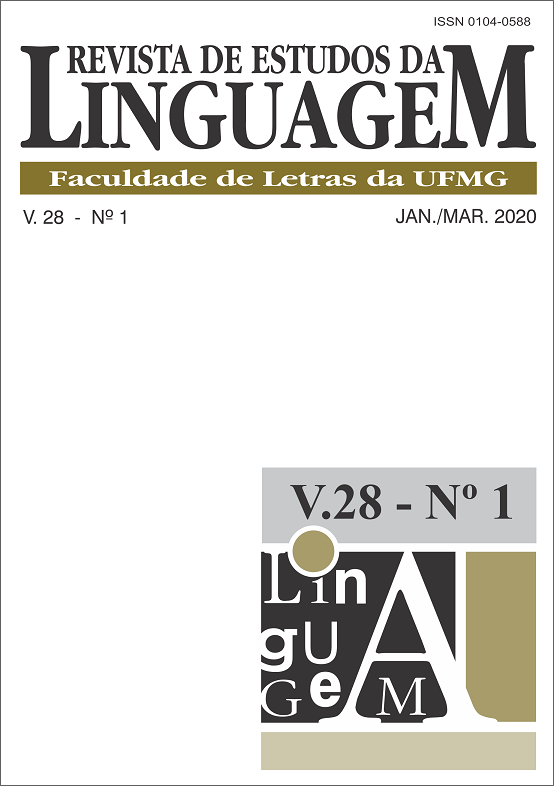Imigrantes japoneses e a língua portuguesa: um caso de preconceito linguístico / Japanese immigrants and the Portuguese language: a case of linguistic prejudice
DOI:
https://doi.org/10.17851/2237-2083.28.1.455-478Palavras-chave:
preconceito linguístico, imigração japonesa, semiótica discursiva, identidade, alteridade, linguistic prejudice, Japanese immigration, discursive semiotics, identity, otherness.Resumo
Resumo: A língua está envolvida nos processos de construção da identidade e da alteridade. Por isso, ela pode também ser utilizada para diferenciar negativamente o outro a partir de processos de julgamento da fala alheia. O presente artigo apresenta algumas considerações a respeito do preconceito linguístico contra os imigrantes asiáticos e os seus descendentes no Brasil. Trata-se de um trabalho de viés histórico e que utiliza a semiótica discursiva francesa para analisar textos jornalísticos publicados a partir da segunda metade do século XX até os dias atuais. A partir do exame das reportagens, observou-se a constante sanção sobre o mau uso que os imigrantes japoneses e os estudantes de origem asiática fazem da língua portuguesa, a despeito do destaque igualmente constante das qualidades de trabalhadores e de estudantes que eles comportam nesses discursos. Desse modo, mesmo com uma imagem atualmente positiva perante a sociedade brasileira, permanece o preconceito linguístico contra os indivíduos de origem asiática no país.
Palavras-chave: preconceito linguístico; imigração japonesa; semiótica discursiva; identidade; alteridade.
Abstract: Language is involved in the processes of identity and alterity construction. Therefore, it can also be used to differentiate negatively the other from processes of judgment of the speech of others. This article presents some considerations regarding linguistic prejudice against Asian immigrants and their descendants in Brazil. It is a work of historical bias and that uses French discursive semiotics to analyze journalistic texts published from the second half of the twentieth century until the present day. From the examination of the reports, the constant sanction on the misuse that Japanese immigrants and students of Asian origin do of the Portuguese language was observed, in spite of the equally constant prominence of the qualities of workers and students that they carry in these speeches. Thus, even with a currently positive image for Brazilian society, linguistic prejudice remains against individuals of Asian origin in the country.
Keywords: linguistic prejudice; Japanese immigration; discursive semiotics; identity; otherness.





